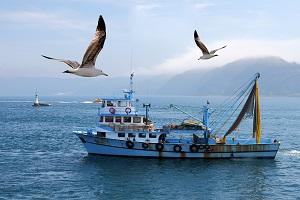Overfishing threatens the sustainability of maritime resources and endangers food security. In the last few years, the share of fish stocks that are within biologically sustainable levels has reached its lowest point in history, down from 90% in 1974 to 65.8% in 2017. Illegal, unreported and unregulated (IUU) fishing represents 20% of annual catches, with a value of US$ 26 billion annually. This is further exacerbated by harmful fisheries subsidies. Currently, vessels and operators involved in IUU fishing can still benefit from subsidies, leading to inequalities in the international fish trade.
For some 20 years, World Trade Organization (WTO) negotiations on fisheries subsidies have aimed to “clarify and improve” existing WTO disciplines on fisheries subsidies. At the WTO fisheries subsidies ministerial meeting on 15 July 2021, WTO members pledged to conclude the negotiations soon, and at the latest before the WTO's Ministerial Conference in early December. An agreement would aim at prohibiting harmful subsidies, including subsidies to vessels engaged in IUU fishing, for fishing and fishing activities on overfished stock, or those that contribute to overcapacity and overfishing.
The effective implementation of such an agreement needs exchange of information on the type and kind of fishing activities, catch data by species, as well as type of vessels. Such exchange of information requires a global communication tool. This is where the United Nations Fisheries Language for Universal eXchange (UN/FLUX) comes in.
UN/FLUX is the first United Nations standard to collect and disseminate fishery catch data, supporting sustainable fishery management and combating IUU. This communication tool allows a standardized exchange of information about fishing data, vessel and trip identification, fishing operations, landing and sales information, license information and inspection data. The geographical coverage of this standard is global and it can be used by governments, fisheries management organizations and control and enforcement authorities.
One of the primary users of this standard is the European Union (EU), whose 27 Member States use UN/FLUX to exchange of information between themselves, third countries and the Commission on fishing activity data and sales-related data messages. As of 2021, 40 UN member States transmit data using the UN/FLUX standard, including all 27 EU member States, 5 other contracting parties to the North-East Atlantic Fisheries Commission (i.e. Denmark, Iceland, Norway, the Russian Federation and the United Kingdom), and the 8 signatories to the Sustainable Fisheries Partnerships Agreements with the EU (Cape Verde, the Gambia, Guinea-Bissau, Mauritius, Morocco, Sao Tome and Príncipe, Senegal, and the Seychelles).
This wide implementation illustrates the relevance of this standard for the current negotiations. Countries can benefit from effective, transparent, and effective data exchange, which also promotes traceability and compliance with sustainable fishery management requirements for this industry. It is a free and open standard developed by the UNECE-hosted United Nations Centre for Trade Facilitation and Electronic Business (UN/CEFACT) - a focal point within the United Nations for trade facilitation recommendations and electronic business standards. UN/FLUX is also compatible with other widely used UN/CEFACT standards, ensuring interoperability.
UN/FLUX can also assist with compliance with the FAO Voluntary Guidelines for Catch Documentation Schemes. These guidelines recommend that the electronic systems that govern fisheries should be based on agreed international standards and formats to exchange information and manage data. Electronic systems must also ensure that their components provide for interoperability.
These efforts contribute to achieving Target 14.4 of the Sustainable Development Goals to end overfishing, illegal, unreported and unregulated (IUU) fishing and destructive fishing practices, including restoring fish stocks. By improving traceability of value chains and enforcing clear standards, this supports the conservation of seas and oceans and the sustainable use of their natural resources.
This work also contributes to strengthened food security and sustainable food production – issues which will be at the heart of global discussions for the UN Food Systems Summit later this year, and its pre-Summit (Rome, 26-28 July 2021).


